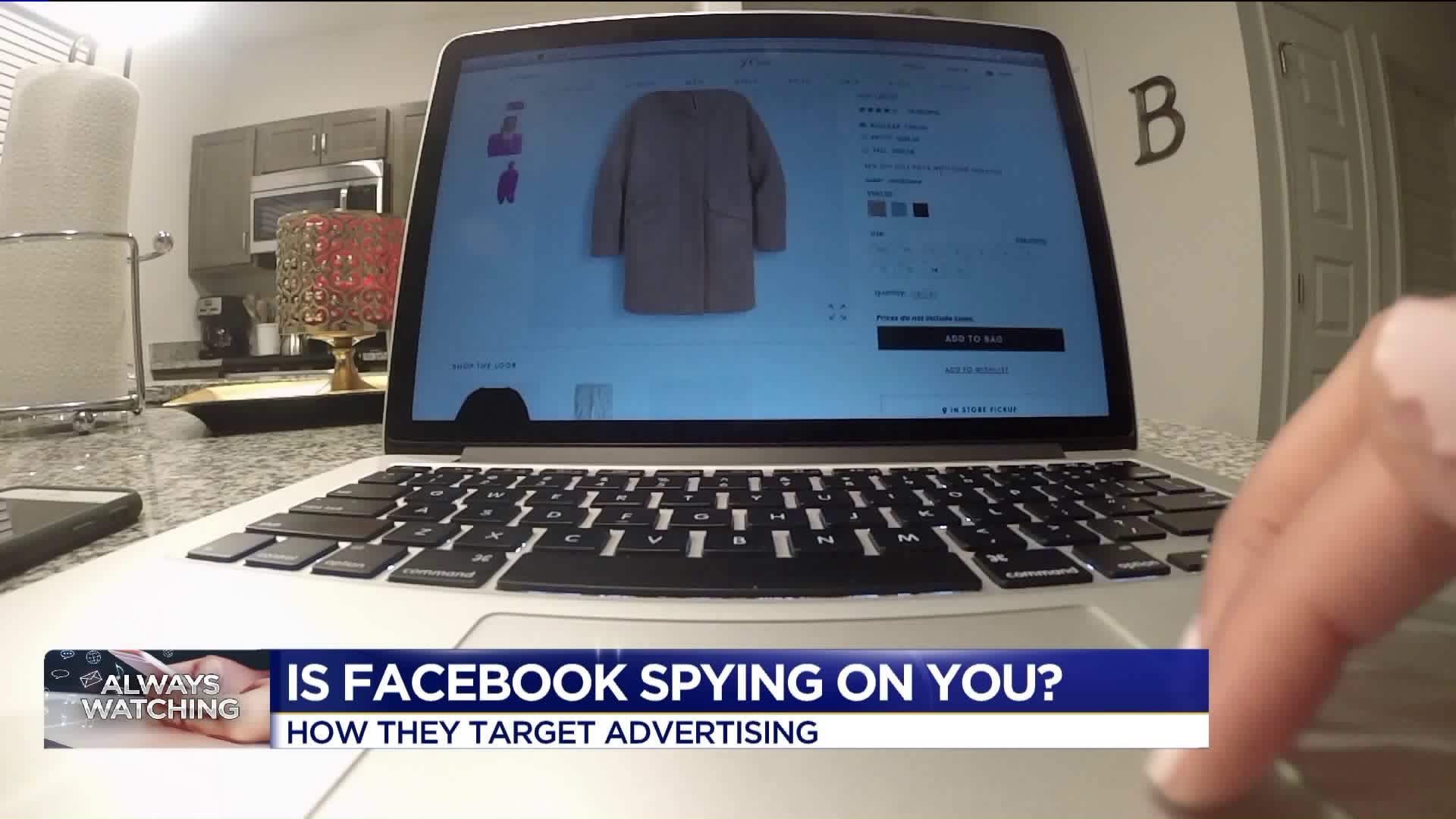HAMPTON ROADS, Va. - Many of us use Facebook to stay in touch with our family and friends. But now, many people believe Facebook is spying on them because of how targeted the advertisements are.
A quick scroll through Facebook provides daily updates, learning about loved ones' life moments or even sharing pictures of a baby's first steps. It's all there for us to enjoy.
"It's nice to go on there and keep in touch with everyone," said Melissa Breden.
But as people spend more time on Facebook, Facebook learns more about them. The ads people may not have noticed a few years ago are now specifically targeted.
"I'll be looking for a new coat for the winter. There you go, J.Crew is having a 50% off sale," said Breden, recalling a recent ad in her feed.
It's no surprise Facebook uses algorithms to tailor things to users' feeds. But now, people are convinced Facebook is using the microphone on their phone to listen to their conversations and advertise things they are talking about to them.
"Most recently, I was visiting her in California and there’s a restaurant Benihanas. They don’t have those here in Virginia. We talked about how we wished they had one here and all of a sudden on Facebook and there you go: Benihanas and a promotion about their restaurant," said Breden.
And it's not just her.
Angie Hardage recalled a recent trip to Target. "I was trying to decide with another friend between Luna bars and Kind bars and immediately I got an ad for a Luna bar. A coupon at Target on my Facebook!"
Jackie Espiritu remembered she was talking to a friend who had sent her a photo of a pair of boots. "And all of a sudden I'm seeing Marshall's with the model wearing the boot," said Espiritu.
"I don't think it’s unreasonable to speculate that Facebook might be listening in on our conversations through our mobile device microphones," said Arael Avinu.
But is it true?
In a Wired opinion article, the first targeted ads leader at Facebook, Antonio Garcia Martinez said, "There's no way Facebook is eavesdropping on you right now. But it is tracking you in other—no less insidious—ways you’re not aware of."
Meaning, they know your family's choice of peanut butter, football team and kids' after-school activities.
Richard Landers, a professor at Old Dominion University with expertise in social media and the Internet explained, "When you visit a website, it's almost like you've liked it. You've left breadcrumbs behind you, a trial of visits."
According to Landers, that's not all. Facebook uses a sort of social graph to see who is closely tied to you or who you interact with frequently. From there, they'll categorize what type of consumer you are.
"Someone who talks about the same sorts of things that someone else talked about when they talked about Pampers is now a way to target advertising based on your family without you ever having shared that information explicitly," said Landers.
There are patterns people's behavior, which Facebook picks up on. Thanks to browsing habits online or what our family and friends do online, Facebook can predict with accuracy whether a tropical getaway or mountain adventure is more appealing.
"Now that people are hyper aware of the fact all of our online behavior is being tracked, we've become so in tuned to it. In reality, they are watching you, usually they're wrong. But it's only in the cases they're right where you notice," said Landers.
The Vice President of Advertising at Facebook, Rob Goldman tweeted:
However, some people are still skeptical.
"If they have all these permissions and these eerie things are happening to everybody and they're having this much success. I don't care what the vice president says about them not listening in," said Avinu.
Moving forward, Landers said it's important to remember while we can access the Internet for free, it's important to think of it as a transaction. Consumers are experiencing the content, entertainment, getting resources or more in exchange for those websites to learn about them.
"We are spending our privacy. We are spending ourselves, information about ourselves in order to get that kind of access," said Landers.
As people continue to scroll through social media, shop online or ask Google for help, just remember someone or something is always watching.


